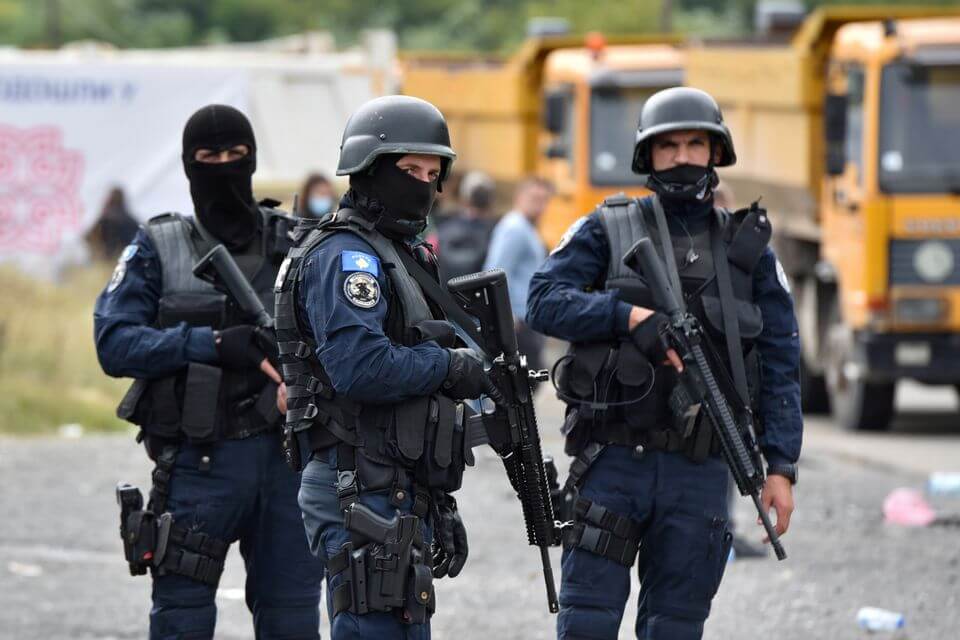On Saturday, Kosovo’s Prime Minister (PM), Albin Kurti, accused Serbia of “trying to provoke a serious international conflict” after two vehicle registration offices near the border in northern Kosovo were attacked on Thursday. Though there were no casualties, a registration office was torched in the town of Zubin Potok and another was damaged in Zvecan, Kurti told Al Jazeera.
Tensions between Serbia and Kosovo have escalated over the past two weeks as both nations make repeated attempts to restrict border entries.
“Individuals and groups whose activities endanger the rule of law and public order are attacking our state and disturbing our peace. Serbia is encouraging them and supporting them. Serbia abuses the citizens of Kosovo,” PM Kurti wrote on Facebook.
Kosovo’s Interior Minister, Xhelal Sveçla also alleged that Thursday’s attack was carried out “by suspects in a criminal act with terrorist elements.”
However, the Serbian government has denied its involvement in the attack that occurred on the sixth day of protests led by ethnic Serbs in opposition to Kosovo’s decision to deploy scores of police at the Jarinje border crossing. The protests began last week after Kosovo’s Interior Ministry banned vehicles with Serbian license plates from entering the country.
Kosovo mandated that vehicles with Serbian license plates are not allowed to cross their border unless they conceal their license plates or use temporary plates (which are valid for 60 days and cost €5). Serbians have criticised this measure, calling for an immediate relaxation of the ban.
According to the Kosovan government, the vehicle ban is simply a “reciprocal measure” that mirrors Serbia’s long-established constraints against Kosovan drivers since 2008. “Our aim is not provocation or instability. Everything that is done is lawful. We are only implementing what is required of an expired agreement,” Kurti told the public on Monday.
In retaliation to Kosovo’s vehicle ban and Kurti’s subsequent accusation, Serbia increased its forces at the Jarinje border crossing, and Serbian President Aleksandar Vucic ordered that the alert level be raised. Vucic claimed that Pristina has historically violated every agreement between the two nations and exacerbated their already sour relations by restricting vehicles.
“No one here wants a conflict, and I hope there won’t be one,” a 45-year-old Serbian protester at the border told Al Jazeera. “We want Pristina to withdraw its forces and cancel the decision on licence plates,” he added.
Meanwhile, the international community has urged the two nations to resolve their disputes and terminate their long-drawn border conflict. European Union (EU) foreign policy chief Josep Borrell demanded that both countries “immediately withdraw special police units and dismantle roadblocks.” “Any further provocations or unilateral and uncoordinated actions are unacceptable,” he said.
Similarly, North Atlantic Treaty Alliance (NATO) Secretary-General Jens Stoltenberg said he had conversations with both Vucic and Kurti and demanded equivalent de-escalation on both sides. “It’s vital both Belgrade and Pristina show restraint and return to dialogue,” he tweeted.
The centuries-old conflict engulfing the two nations came to a turning point during the 1990s when Kosovo declared its independence. Since then, Serbia has refused to accept Kosovo’s statehood and claims sovereignty over the region despite having no formal control. Over the years, the conflict has manifested itself in continued aggression at their borders. The global community, including the 110 nations that recognise Kosovo’s statehood, the EU, NATO, the United Nations, have called for the cessation to hostilities.

